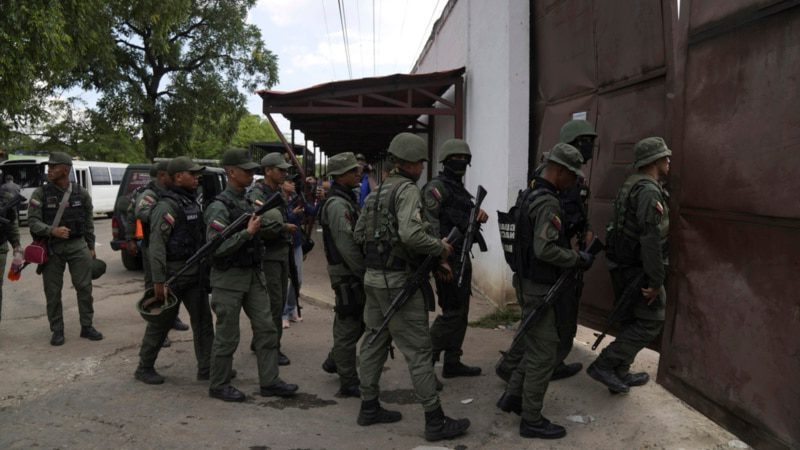Houston, TX — A storm that began in the dark, crowded prisons of Venezuela has crossed borders, now threatening the very heart of America. Its name is the Tren de Aragua, a gang forged in chaos and violence, spreading fear from Texas to Colorado, and beyond. Once a mere whisper in the violent streets of Caracas, this gang is now a force that American cities can no longer ignore.
Wes Tabor, a former DEA agent, remembers when the Tren de Aragua was still young, its influence limited to Venezuela’s back alleys and crumbling prison yards. But now, this gang has risen to transnational infamy, making headlines and instilling dread as they exploit the vulnerabilities of a migrant crisis that’s sent millions of Venezuelans fleeing from the economic wreckage of their homeland. In 2024, America grapples with a haunting question: Has this storm arrived too late for us to stop it?
A Gang Without Borders, A Threat Without Limits
The Tren de Aragua is not just any gang. It is a creature of violence without restraint, one that thrives on chaos and preys upon the desperate. In July, the Biden administration sanctioned the gang, placing it alongside some of the world’s most infamous criminal organizations, such as MS-13 and Italy’s Camorra. Their reach now extends far beyond the borders of Venezuela, and their crimes—extortion, kidnapping, and murder—know no limits.
Texas Governor Greg Abbott, hearing the alarm, has declared the Tren de Aragua a Level 1 threat, marking them for severe scrutiny and law enforcement action. Abbott’s warning is clear, and other states may soon follow, but this action raises a difficult question: Can law enforcement truly stop the storm before it consumes more lives?
Fear in the Suburbs: Aurora’s Wake-Up Call
It was in Aurora, Colorado, that the gang made its presence unmistakable. A chilling surveillance video captured men, heavily armed and moving with the confidence of those who have long abandoned fear. They entered an apartment as if they owned the world. The video spread like wildfire, igniting a storm of rumors and fears. Donald Trump, never one to miss a headline, declared his intent to “liberate Aurora” from the “Venezuelan takeover.” His words, though exaggerated, spoke to a fear many residents were already feeling.
Aurora’s police have downplayed the panic, but the facts remain: 10 members of the Tren de Aragua are under investigation for a string of violent crimes. One suspect, a Venezuelan man arrested in a nearby Denver suburb, allegedly wielded an AR-15 during a robbery. Another has a criminal trail that stretches from Colorado to New York, involving everything from vehicle theft to assault.
Across the U.S., the gang’s members have been tied to drug smuggling, sex trafficking, and police shootouts, leaving behind a trail of fear and uncertainty. As they weave through the cracks of America’s immigration crisis, they exploit the very routes meant to offer refuge to those escaping Venezuela’s economic collapse.
The Tren’s Origin: Born in Chaos, Raised in Desperation
The Tren de Aragua was born in Venezuela, more than a decade ago, in one of the country’s most notorious prisons. Héctor Guerrero, a man known by the alias El Niño, built the gang from the ground up, establishing a brutal rule inside prison walls where life was cheap, and power was everything. Guerrero, jailed for the murder of a police officer, escaped twice from Venezuela’s failing prison system. Today, he is believed to be hiding in Colombia, far from the law’s grasp.
Venezuela’s own turmoil helped the gang grow. As President Nicolás Maduro struggled to control the collapse of his nation, over 8 million Venezuelans fled, seeking refuge in neighboring Latin American countries and the United States. But along with the families searching for hope, the Tren de Aragua crossed borders too, bringing with them violence, extortion, and terror to already struggling communities.
In Chile, Peru, and Colombia, where Venezuelan migrants have gathered in large numbers, the Tren de Aragua is said to be behind a surge of murder, extortion, and drug trafficking. In some neighborhoods, they have implemented their own brutal form of “justice,” beheading or burying their enemies alive, leaving terror in their wake. Now, U.S. communities must grapple with this same vicious threat.
A Political Storm: Republicans Call for Action
As the Tren de Aragua gains a foothold in America, Republican lawmakers are voicing their concern, calling for an urgent response. Led by Senator Marco Rubio, Florida’s representative and vice-chair of the Senate’s Select Committee on Intelligence, a group of 11 Republican senators sent a letter to Attorney General Merrick Garland last week. Their demand: a coordinated strategy to confront this gang before it’s too late.
“The lax enforcement of immigration laws,” they argue, “has allowed criminal organizations like the Tren de Aragua to flourish, exploiting the same pathways that vulnerable migrants use to enter the U.S.” Their plea is not without reason. For every law-abiding Venezuelan immigrant, there may be a gang member using the same routes to bring terror into U.S. neighborhoods.
A Reckoning Approaches: The Future of the Tren de Aragua in America
The storm that is the Tren de Aragua has only just begun to brew on American soil, but its presence is unmistakable. From the border towns of Texas to the suburbs of Colorado, it’s clear that this is no passing threat. With every news report, every arrest, every new account of violence, it becomes harder to ignore. America’s cities, like those across Latin America, now stand at a crossroads—will they fight back, or will they succumb to the chaos?
As the Biden administration steps up its efforts and local law enforcement tightens its grip, the battle against this transnational gang intensifies. But one thing remains certain: this gang, born of Venezuelan despair, will not be easily contained.
And so, the question that lingers in the minds of millions is this: How far will the Tren de Aragua go, and how many lives will it touch before it is stopped?


